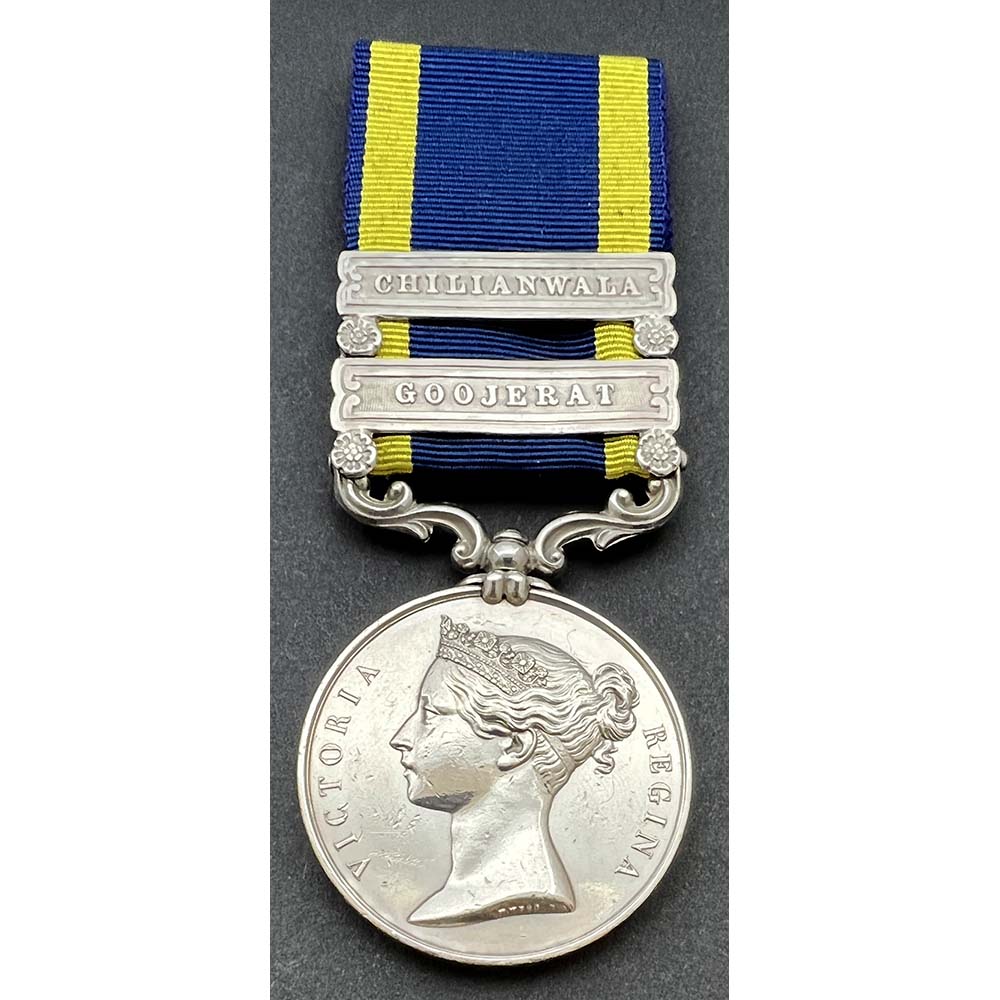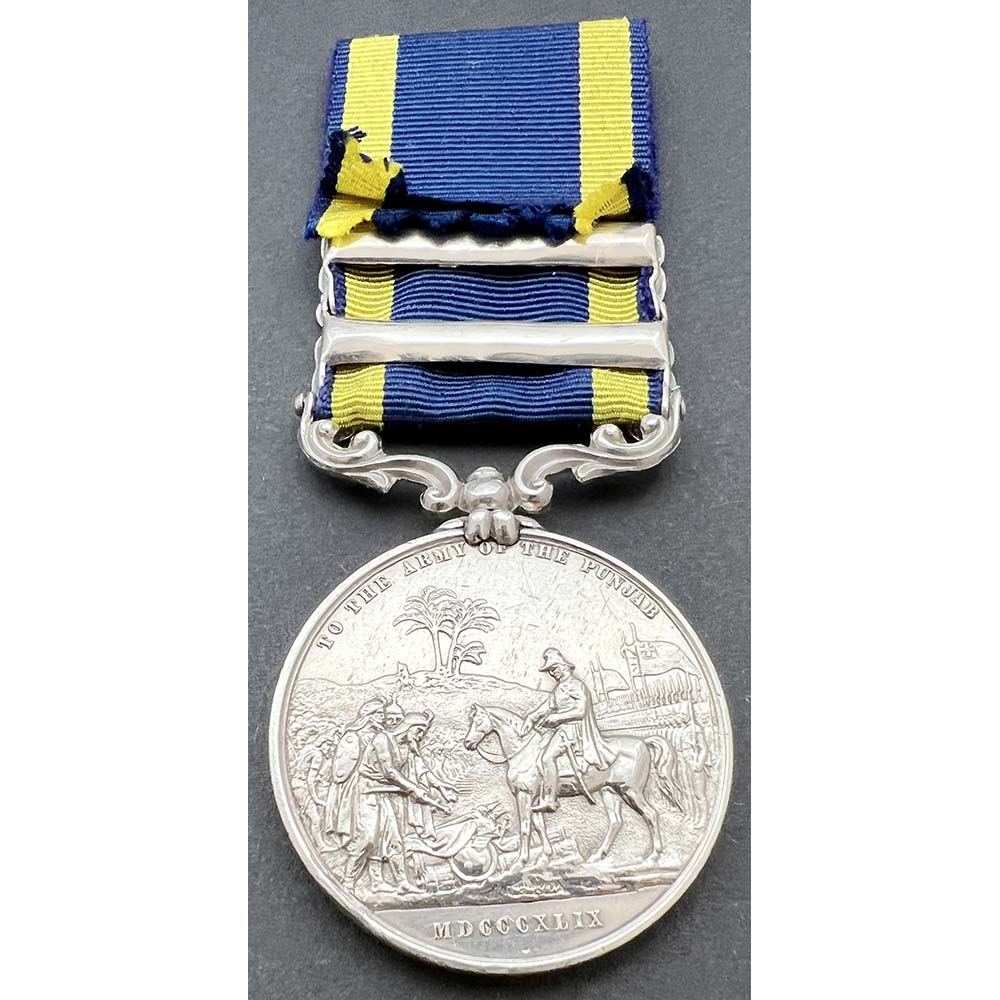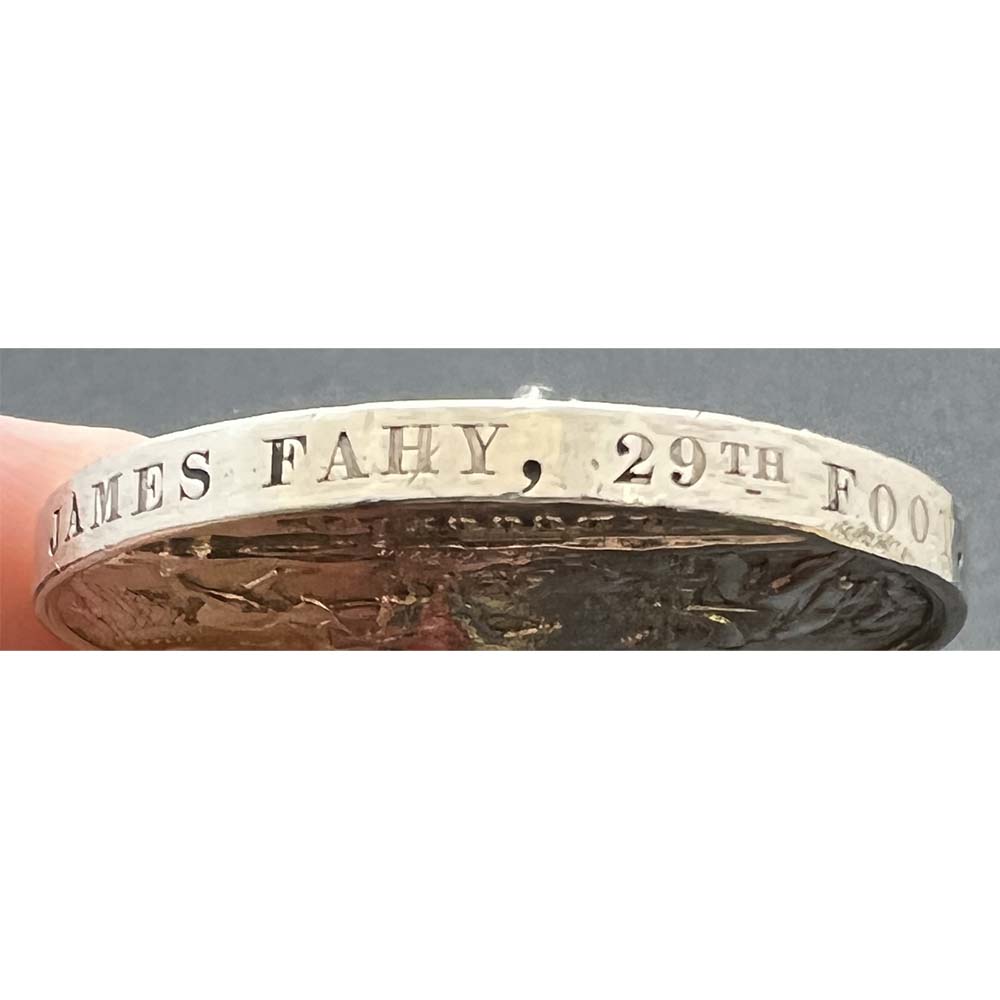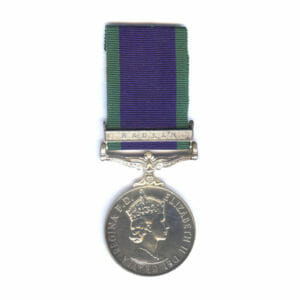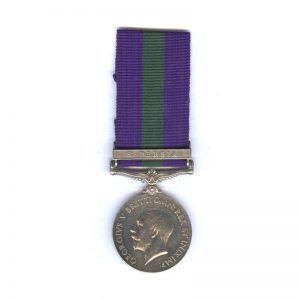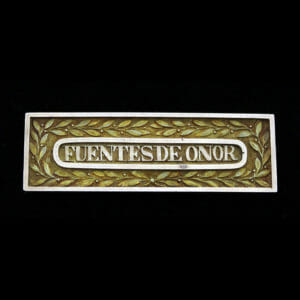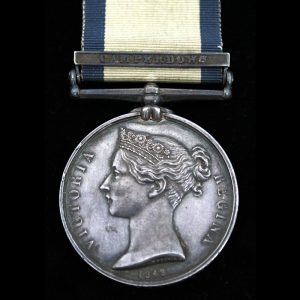Description
Punjab Medal, 2 bars, Goojerat, Chilianwala, James Fahy, 29th Regiment of Foot, the Worcester Regiment.
Officially impressed: “James Fahy 29th Foot.”
Some contact wear and one slight edge bruise, but good condition for a man who saw extensive service of 21 years in India.
Only medal entitlement, served about 22 years in the Army but a few setbacks early in his career and a court martial would later lose a chance at the LS&GC Medal.
James Fahey, was born during 1825 in Roscommon, Ireland.
He first attested for service at the age of 21 at Liverpool on 15th December 1846, into the 29th Worcestershire Regiment of Foot.
Following service in the Punjab War, where he was present with the regiment at the battle of both Chillianwala and Goojerat, his Papers recording he was in possession of “The Punjab Medal with 2 clasps for Chillianwallah and Goojerat.”
Promoted to Corporal on 4th August 1850, but already demoted by 26th October 1850. Having been tried, reduced and imprisoned, until 9th November 1850.
He served in India throughout the period of the Indian Mutiny with the 29th, but does not appear to have earned a medal.
He transferred to the 6th European Bengal Infantry on 1st April 1859.
the 6th “Bengal European Regiment” had been formed in 1858 for service in the Indian Mutiny. After the war, it was reduced to cadre strength in 1861.
As such Pte Fahey volunteered to join the 104th Regiment on 17th February 1861.
The 104th Regiment of Foot, known as the Royal Bengal Fusiliers was another Indian Army Unit manned by European soldiers, which transferred to the British Army in 1862.
During 1870s, under the Cardwell Reforms it merged with the 101st Regiment of Foot, to form the “Royal Munster Fusiliers”.
He was discharged to pension, as medically unfit due to extensive campaigning on 13th June 1869, having amassed 22 years 169 days service.
Of this, 21 years 4 days had been spent overseas in “East India”.
Being assessed by the Staff Surgeon at Netley for discharge on 26th May 1869, he was found to be suffering from “Debility, From long service.”
“He is exhausted and worn out from long service and long residence in the Tropics. This may contribute towards earning a livelihood, has not been aggravated by Vice or Intemperance.”
Having spent half his life in India, he chose to return back to to his home in Athlone, Roscommon, Ireland.
